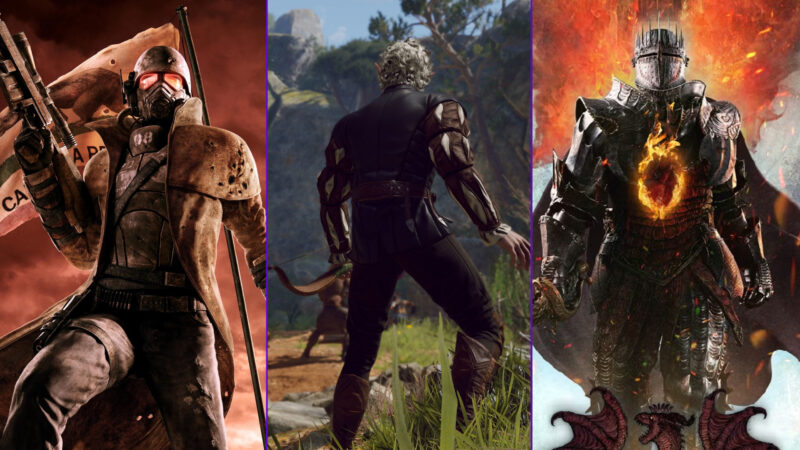Learn how to play and what are the strengths of Mage Vocation in Dragon’s Dogma 2 with the class and skills guide.
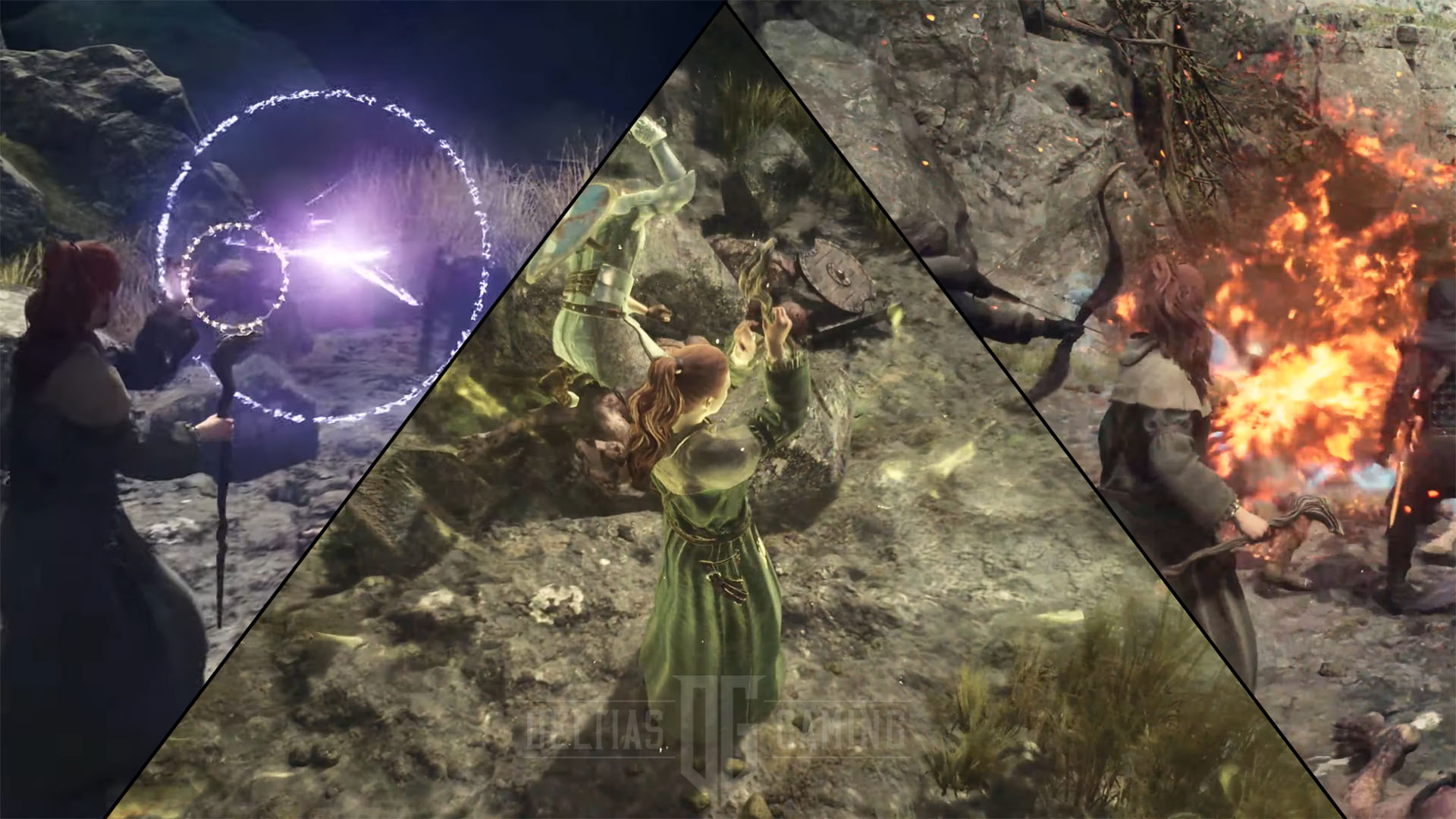
Mage Vocation (Class) Overview
In Dragon’s Dogma 2, the role of a Mage is to support the party by using their healing and buffing skills. It is the starting vocation and all-around great magick user who wields a staff. However, for those who are looking for more damage and power in their spellcasting, the Sorcerer is the better option later on. Both, however, can levitate, cast spells, and are potent spellcasters in any group.
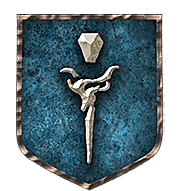
Mage Vocation (Class) Features in Dragon’s Dogma 2:
- Vocation: Basic Vocation
- Weapons: Staffs
- Primary Statistic: Unknown
- Available for Pawns: Yes
- Playstyle: Ranged
- Advantages: Mobility, High Range Damage per Second
The vocation you choose in Dragon’s Dogma 2 defines the skills, playstyle, and weapons you or your pawns (companions) can use in combat. Additionally, as you level up, you will improve statistics and unlock Augments, passive boosts. Both will help you increase your combat efficiency, including survivability and damage output.
It’s important to know that you can change your actively equipped skills at any campfire if you have a camping kit. You can obtain a camping kit by purchasing it from merchants, or, if you are lucky, you may find one in the world. However, it’s worth noting that you cannot unlock new skills or change your vocation at campfires.
Should you play Mage Vocation (Class) in Dragon’s Dogma 2?
Mage is an excellent choice for players who like to support the team, stay in back lines, and deal damage from far away. One of the biggest pros of Mage is the Anodyne skill. It conjures a magickal curative sigil that recovers the health of the caster and their allies when in contact with it. As a result, at least one mage will be a must-have for any team in Dragon’s Dogma 2.
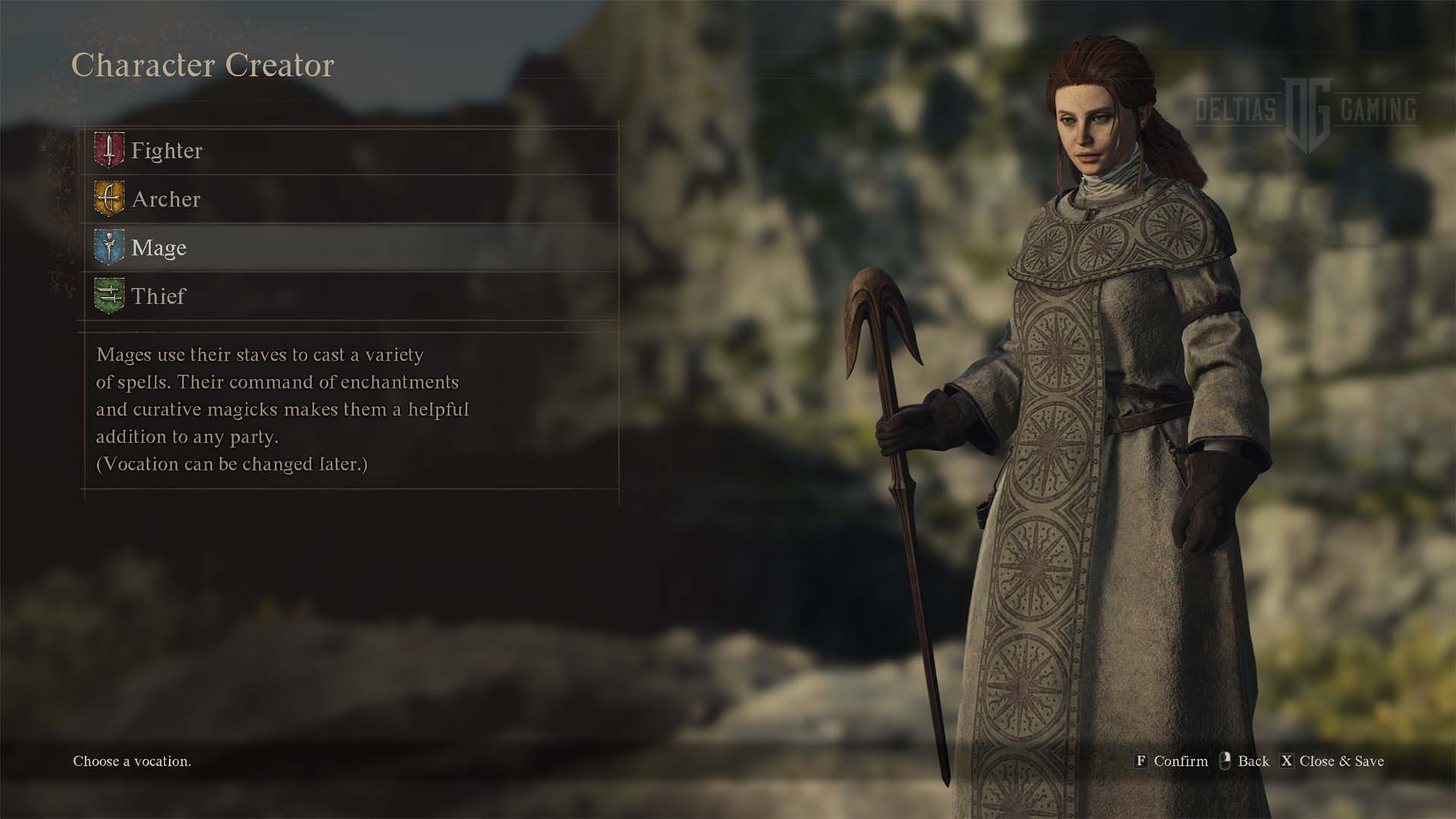
It’s worth noting that playing from afar doesn’t mean you will stand in one place and never have to worry about incoming damage. Also, one of the class’s weaknesses is low resistance to enemy attacks and mobility. Especially when you will be casting spells, you can be easily interrupted by enemy attacks. You will need a warrior or another character who can focus enemies on themselves and protect a mage during combat.
Additionally, you will need to constantly balance between your resource poll. However, it’s an extremely rewarding playstyle when you can provide the group with needed support and deal fantastic damage with fantastically animated effects of your high-damage spells.
How to Play Mage Vocation (Class)
Battlefield Awareness and Positioning: Casting Magic requires good battlefield awareness. As mentioned, while casting, you often can’t move. So you will need another pawn to focus the enemy’s attention on themselves to give you time to finish the spell without interruptions. Another crucial aspect is positioning; strategically picking the perfect spot for yourself will give you an advantage and time. That includes high places and staying outside of harm’s way. Casting time can be a long process, and you don’t have much armor protection or resistances as a mage.
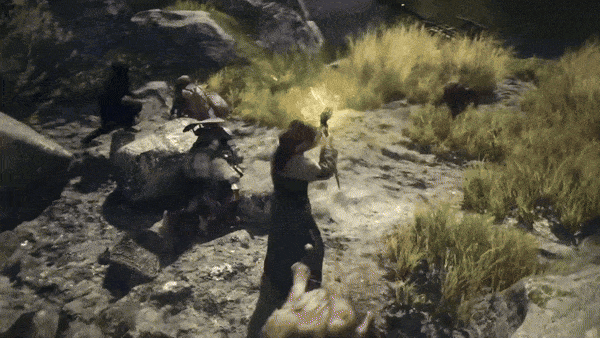
Elemental Magic: Mages are the basic vocation (class) in Dragon’s Dogma 2, who can cast various elemental offensive spells. They are expected to cast damage spells from afar, and you will have a decent choice between fire, frost, and lightning elements. One of the most recognizable spells is Flagration. It casts a cone of fire from the mage’s hands. The Levin spell can spam multiple lighting charges, each damaging enemies while consuming stamina. Those elemental spells will also apply status effects. For example, ice can slow or trap enemies.
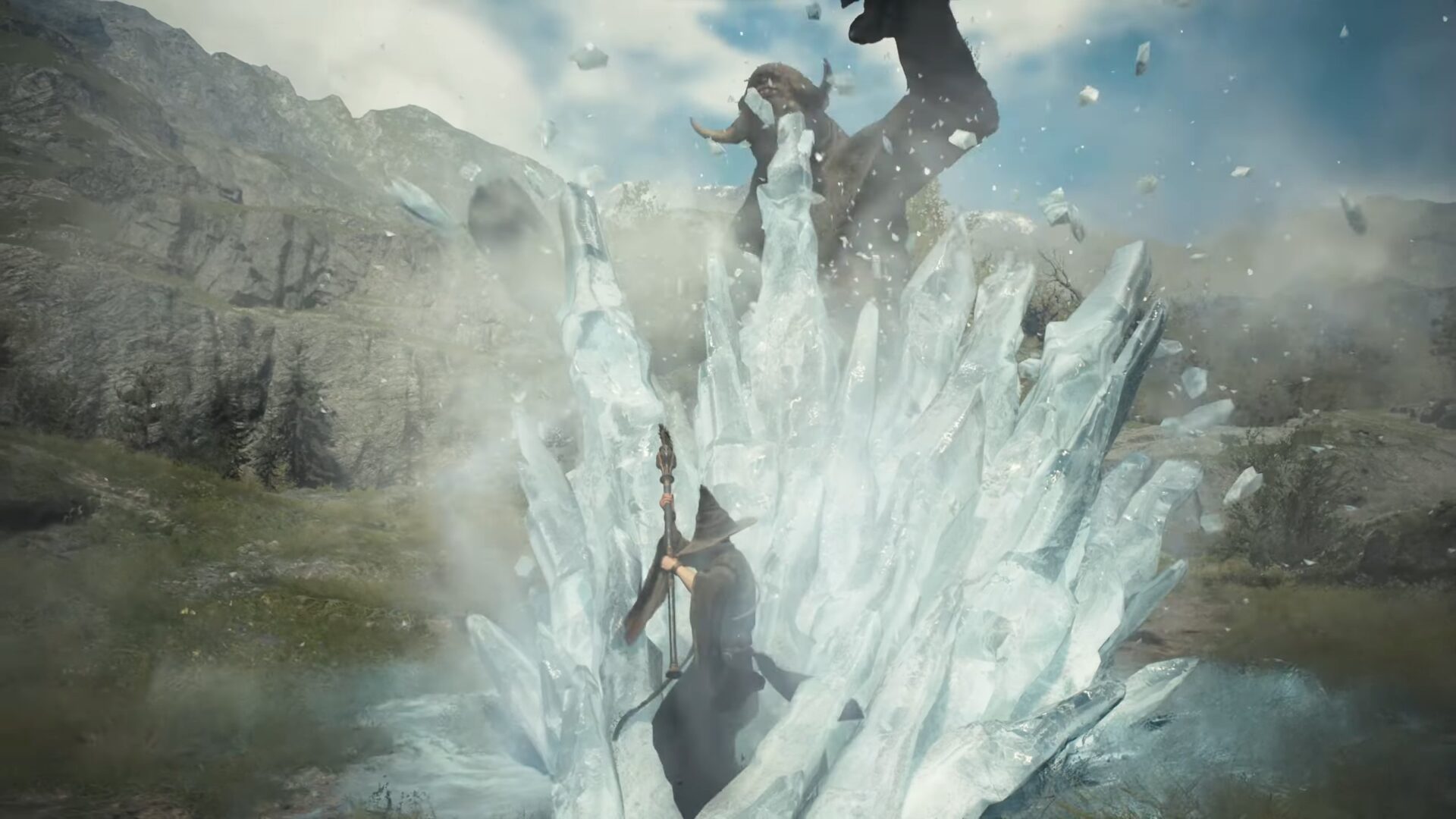
Boons and Affinities (enchantments): Spells that grant elemental attributes to teams’ weapons are also in the Mage’s arsenal. Boons and affinities were highly valued spells in the previous game. These enchantments were a must-have for every party because every player could quickly strike with a weapon enchanted with their enemies’ elemental weaknesses. That gives a team an edge and allows them to inflict more damage. Furthermore, boons and affinities can also inflict certain debuffs on anything they hit, weakening their enemies.
Related:
Party Support: Thanks to the Celerity, your mage can hasten the movement of the whole party. Pair that with buffs, debuffs, healing ability, and weapon boosts for the team, and the mage’s importance becomes apparent.
Mage Maister’s Teachings
In Dragon’s Dogma 2, you can learn ultimate abilities from vocation Maisters who have mastered their chosen vocation. Once you have gained their approval, you can unlock these powerful skills. Obtaining these abilities can often alter the way you play your class and are definitely worth the effort.
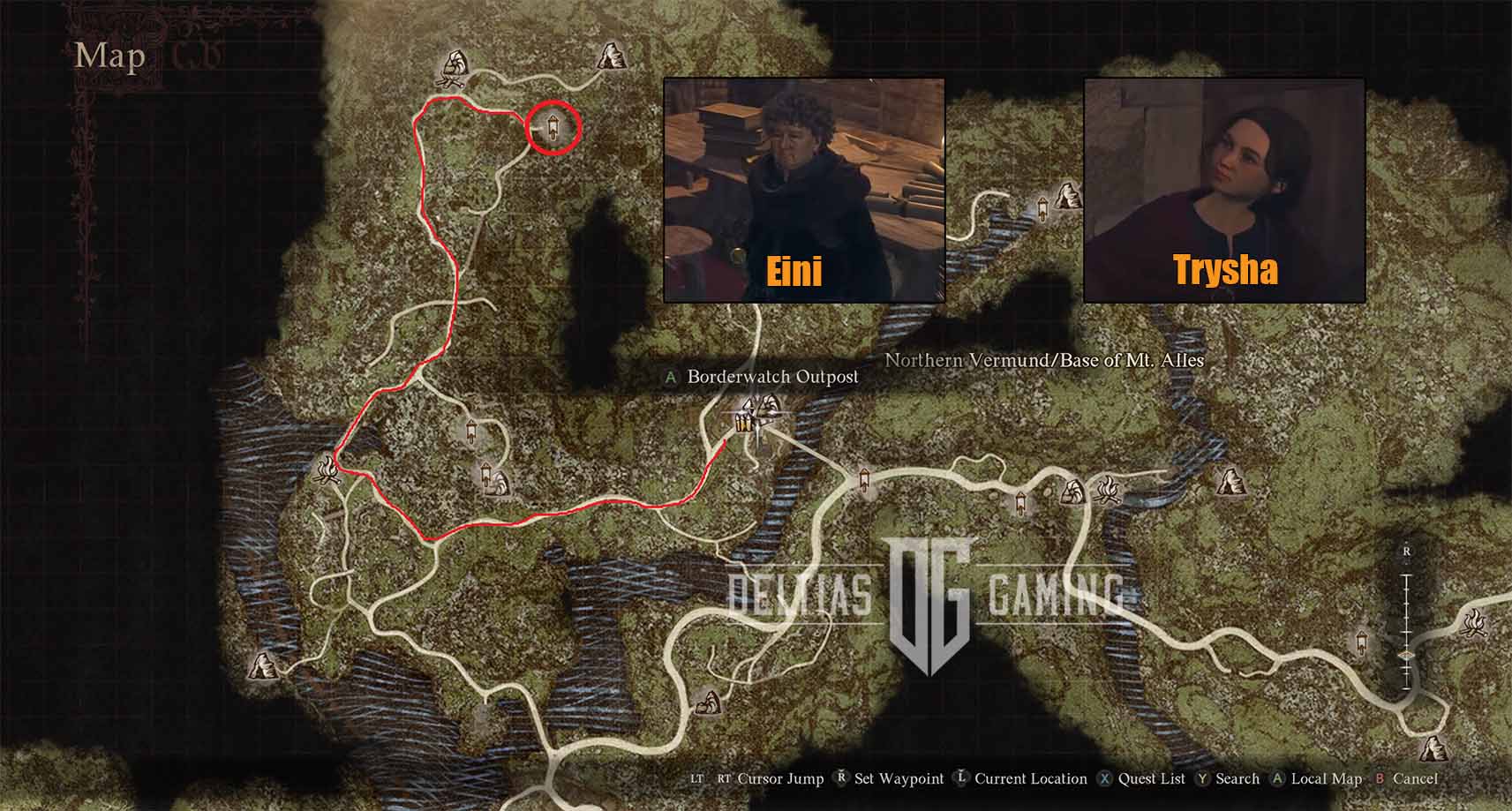
No specific Vocation Rank is needed to unlock ultimate abilities, but you must have unlocked the Vocation itself. Mage vocation is immediately available at the start of the game.
The Following Lists presents the Mage Ultimate Ability and How to Unlock:
- Maister: Eini
- Location: Eini’s House; a solitary location north of Melve and northwest of the Borderwatch Outpost.
- Required Quest: ‘Spellbound’. This quest will send you out to find 5 grimoires for Eini’s granddaughter Trysha. Later on, you’ll need to return to save Trysha from her magic and earn an ultimate ability for Sorcerer, too.
- Quest Timer: One of the grimoires can be found during the Caged Magistrate quest, so it’s best to pick up Spellbound before starting that one. Overall, however, it’s unknown if there is a quest timer beyond which you can fail the quest.
- Ultimate Ability – Celestial Paean: Summons a wave of holy light that hastens stamina recovery and the speed of allies who touch it, while reducing damage taken. Consumes all of the caster’s stamina and knocks them off their feet.
Once you complete the Spellbound quest and unlock the Mage’s ultimate ability, you will also gain access to the Sorcerer’s ultimate ability. Trysha will grant you this ultimate skill when you complete her task.
How to Unlock More Skills
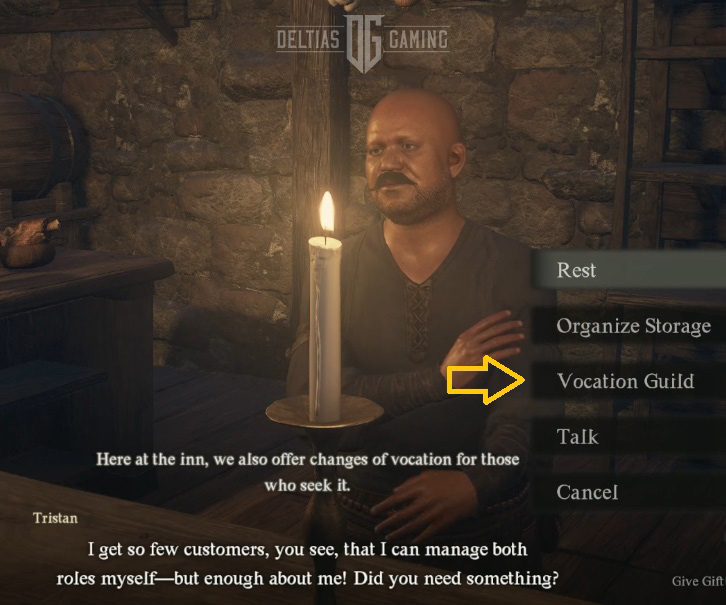
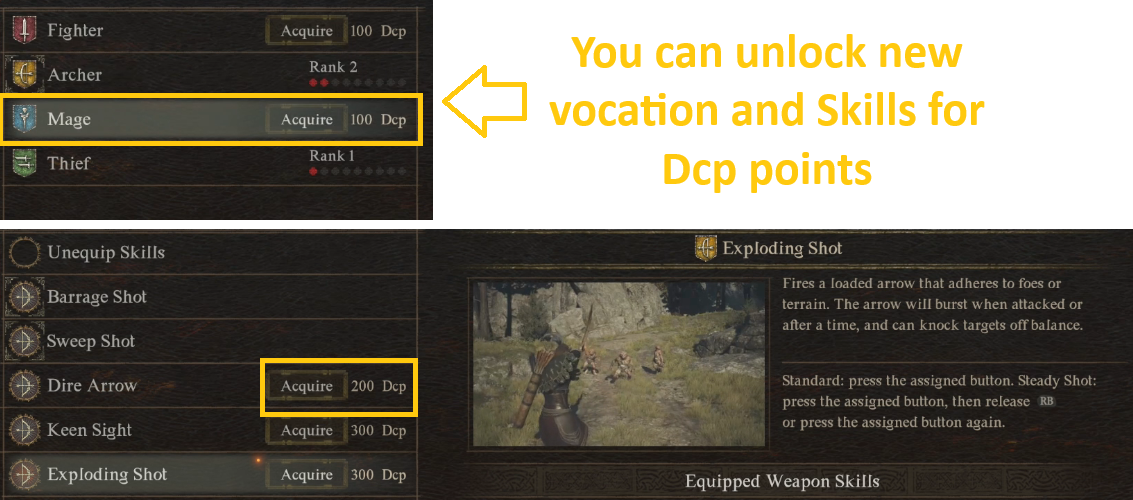
You can change and unlock more skills and vocations in Vocation Guilds and some Inns. Here are some Locations where you can change your vocation and unlock more:
- Inn in Melve (in the north)
- Inn in Vernaorth (center of the map)
- Guild Hall in Bakbattahl (northeast part of the map)
- Guild Hall in Vernworth (south)
Mage Skills and Augments
Just like all vocations in Dragon’s Dogma 2, Archer has access to three types of skills:
- Weapon Skills: Vocation-dependent weapon skills refer to specialized weapon techniques that may differ among various vocations, even if they share the same weapons. ( As such, it is crucial to understand the weapon skills available to your vocation to optimize your combat abilities.) These skills can be executed by pressing the related weapon skill button.
- Core Skills: Skills that are dependent on a specific weapon can be used by any vocation that has access to it. These skills are performed by pressing the light and heavy attack buttons in a specific order.
- Augments: Passive trait buffs are earned when leveling a specific vocation. Once unlocked, the augment can be used regardless of the character’s vocation.
As you can see, some of those skills are passive boosts, and some are active abilities used in combat to deal damage and sometimes crowd control the battlefield.
You can have only a few skills per category active simultaneously. With ranks, you unlock skills by using specific vocations in combat as you level up. So some of the skills in the list below might not be available for you from the start.
Below, you can find all Mage class Weapon Skills, Core Skills, and Augmentations in Dragon’s Dogma 2.
Mage Weapon Skills
Flagration
- Rank: 1
- Cost: 0
- Description: Unleashes a swirling jet of flame straight ahead for a period of time. The flame ignores Defense and can pass through multiple targets. While active, the caster can still move.
High Flagration
- Rank: 4
- Cost: 1000
- Description: An advanced form of Flagration that unleashes a more powerful jet of flame.
Levin
- Rank: 1
- Cost: 150
- Description: Strikes the enemy from above with tongues of lightning. Can summon additional lightning bolts by consuming Stamina.
High Levin
- Rank: 4
- Cost: 1000
- Description: An advanced form of Levin that summons a greater number of lightning bolts when cast.
Palladium
- Rank: 1
- Cost: 200
- Description: Conjures a cluster of magickal energy that blocks up to three attacks from targets. The cluster will also dissipate after a time.
High Palladium
- Rank: 4
- Cost: 1000
- Description: An advanced form of Palladium that lasts longer and grants clusters to nearby allies when cast.
Fire Boon
- Rank: 1
- Cost: 200
- Description: Enchants the caster’s weapon or that of a single ally with fire. The enchantment persists for a period of time.
Fire Affinity
- Rank: 5
- Cost: 1300
- Description: An advanced form of Fire Boon that grants a longer-lasting enchantment.
Ice Boon
- Rank: 2
- Cost: 300
- Description: Enchants the caster’s weapon or that of a single ally with ice. The enchantment persists for a period of time.
Ice Affinity
- Rank: 5
- Cost: 1300
- Description: An advanced form of Ice Boon that grants a longer-lasting enchantment.
Lightning Boon
- Rank: 2
- Cost: 300
- Description: Enchants the caster’s weapon or that of a single ally with lightning. The enchantment persists for a period of time.
Lightning Affinity
- Rank: 5
- Cost: 1300
- Description: An advanced form of Lightning Boon that grants a longer-lasting enchantment.
Frigor
- Rank: 3
- Cost: 450
- Description: Conjures a giant pillar of ice that lingers for a period of time and can serve as a stepping stone. After the pillar is destroyed, grabbable blocks of ice will remain.
High Frigor
- Rank: 6
- Cost: 1600
- Description: An advanced form of Frigor that unleashes a wave of cold when cast, dealing damage to any targets it touches.
Halidom
- Rank: 3
- Cost: 450
- Description: Conjures a magickal sigil that cures the caster and their allies of certain debilitations (caught fire, frostbite, unconscious, sleep, silence, drenched, and tarred) while within range.
High Halidom
- Rank: 6
- Cost: 1600
- Description: An advanced form of Halidom that has an extended duration and cures the debilitations caught fire, frostbite, unconscious, sleep, silence, drenched, tarred, torched, ice-bound, and blighted.
Empyrean
- Rank: 4
- Cost: 700
- Description: Conjures an orb of holy light that deals immediate damage to nearby targets in all directions. The light remains for some time even after the attack concludes.
High Empyrean
- Rank: 7
- Cost: 2000
- Description: An advanced form of Empyrean with an extended attack range and longer-lasting light.
Celerity
- Rank: 4
- Cost: 700
- Description: Conjures a magickal sigil that hastens the speed of allies within range. The effect persists for a period of time.
High Celerity
- Rank: 7
- Cost: 2000
- Description: An advanced form of Celerity that conjures a longer-lasting magickal sigil and extends the ensuing speed boost’s duration.
Argent Tonic
- Rank: 5
- Cost: 1100
- Description: Fully and instantaneously recovers the Health of the caster or of a single ally. Does not recover the loss gauge.
Argent Succor
- Rank: 8
- Cost: 2500
- Description: An advanced form of Argent Tonic that gradually continues to recover Health for a period of time.
Solemnity
- Rank: 6
- Cost: 1800
- Description: Silences the target for a period of time, preventing them from speaking and incanting spells.
High Solemnity
- Rank: 8
- Cost: 2500
- Description: An advanced form of Solemnity that extends both the spell’s effective range and the debilitation’s duration.
Spellhold
- Rank: 7
- Cost: 2500
- Description: Temporarily stores an incanted spell in the staff, to be cast instantly at the wielder’s discretion. Slows Stamina recovery while storing, and consumes increased Stamina when casting.
High Spellhold
- Rank: 9
- Cost: 3000
- Description: An advanced form of Spellhold that consumes less Stamina when casting the stored spell.
Celestial Paean
- Rank: Enchanter’s Almanac
- Cost: Enchanter’s Almanac
- Description: Summons a wave of holy light that hastens both the Stamina recovery and speed of allies who touch it, while reducing damage taken. Consumes all of the caster’s Stamina and knocks them off their feet.
Mage Core Skills
Magick Bolt
- Rank: 0
- Cost: 0
- Description: Fires a magickal burst that differs based on active enchantment. Can be cast while moving.
Anodyne
- Rank: 0
- Cost: 0
- Description: Conjures a magickal curative sigil that recovers the health of the caster and their allies when in contact with it.
Focused Bolt
- Rank: 1
- Cost: 100
- Description: Fires a condensed magickal burst that differs based on active enchantment.
Quickspell
- Rank: 2
- Cost: 250
- Description: Greatly hastens incantation speed. Consumes Stamina while active.
Levitate
- Rank: 3
- Cost: 400
- Description: Manipulates the caster’s weight through magickal means, allowing them to float temporarily.
Mage Augments
Apotropaism
- Rank: 2
- Cost: 300
- Description: Augments your Magick Defense.
Beatitude
- Rank: 4
- Cost: 900
- Description: Increases the amount of Health recovered by curatives and curative magicks.
Intervention
- Rank: 6
- Cost: 1800
- Description: Reduces the duration of debilitations you are afflicted with
Perpetuation
- Rank: 8
- Cost: 3000
- Description: Extends the duration of enchantments and invigorations.
Exaltation
- Rank: 9
- Cost: 5000
- Description: Augments your Stamina recovery speed.
The Best Mage Skills
Ensure you use skills matching your playstyle and exploit enemy weaknesses for the best results. Here are the best mage skills in Dragon’s Dogma 2 worth considering:
- Levin (High Levin): Lighting damage can be cast at range.
- Fire Boon (Fire Affinity): buffs your party weapons with fire damage.
- Halidom (High Halidom): removes negative effects from party members.
- Argent Tonic (Argent Succor): burst heal in combat.
Looking For More About Dragon’s Dogma 2?
Thank you for reading Dragon’s Dogma 2: Mage Vocation (Class) Guide. We provide the latest news and create guides for Dragon’s Dogma 2, Enshrouded, and Baldur’s Gate 3. Also, watch me play games on Twitch or visit my YouTube channel!
 Reddit
Reddit
 Email
Email
